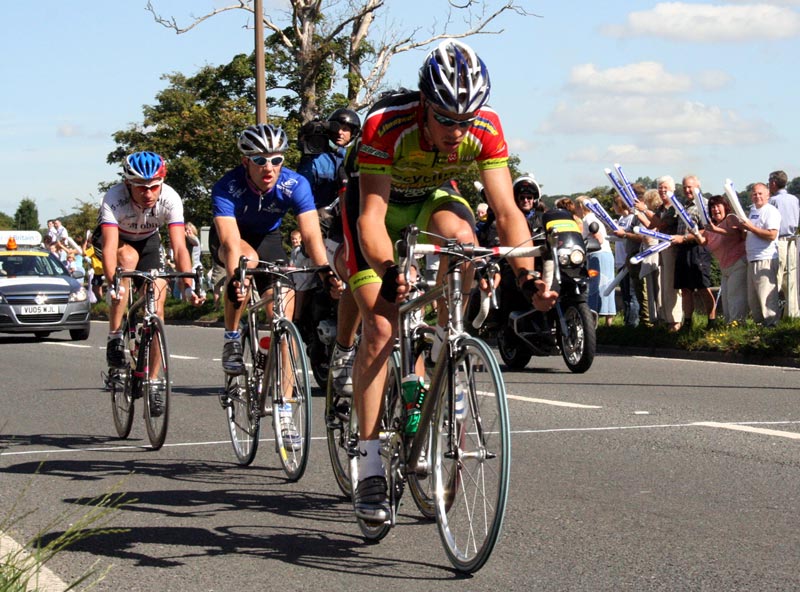Do you want to study Sports Science at University?
3rd September 12
I want to study Sports Science at university, what will I need, and where should I go?
As a rule, one A in a science A Level like Biology, Chemistry or Physics, combined with good grades in your other A Level subjects should be enough to get you in to the university of your choice. And while a lot of institutions do not specify exactly what other A Levels you will need to take, the best universities to study Sports Science at are also BIG sporting universities, and they expect their students have an active sporting life and are passionate about the subject. While it’s not mandatory that you be good at sport, you will need to eat, drink and sleep the subject, and be able to show the university this at interview and in your personal statement.
The Complete University Guide listed the following five universities as the best places to study Sports Science in 2013:
Loughborough University – School of Sport, Exercise and Health Sciences – Loughborough University is THE place to go to study anything to do with Sports in the UK. As such, they can, and will ask you for the very best grades at A Level. Expect an offer of AAB at the very least. One of those As will need to be in Biology, Maths, Physics, Chemistry, Psychology,Sociology, History, English Language or English Literature.
Durham University – School of Applied Social Sciences – Durham is another excellent university in the UK, and they can also ask for the top grades for their degree courses. Expect an offer of no less than AAB at A Level. They are less specific about what A Level subjects are acceptable, but General Studies is on A Level course they will not accept.
University of Exeter – School of Sport and Health Sciences – Exeter will offer you something between AAB and ABB. They are also less specific about which A Levels they require for entry onto their degree course, and take a more holistic approach to grading their applicants. They want their students to show them a genuine passion and enthusiasm for the subject. That means that not only will your grades need to be top notch, but your personal statement will need to be exemplary, and they probably want to interview you.
The University of Edinburgh – School of Education – Edinburgh will ask you for BBC at A Level, to include one or two of Chemistry and / or Biology A Level. Don’t be fooled by the lower entry requirements, Edinburgh is a fantastic university, will an outstanding reputation.
The University of Birmingham – School of Sport and Exercise Sciences – Birmingham will offer you between AAA and AAB. You must have at least one A in Biology, Chemistry, Economics, Geography, Human Biology, Mathematics, Physics, Psychology, Sport Studies/Physical Education or Statistics. HOWEVER, a lower offer of ABB is not uncommon if you are doing two or more of the desired A Level courses.
Once I’m there, what can I expect?
Studying Sports Science at University will give you a behind the scenes look at sports coaching and sports management, and a number of other physiological,psychological and biomechanical factors that all contribute to performance in sport.
Sports Science is an incredibly broad subject, as such you might study for a Bachelor of Science or Arts qualification. Your university course could cover anything from sports technology, exercise physiology and sports psychology, to coaching and management, and the relationship between sport and the media. As a general rule, if the course is technology, psychology or physiology based, there will be more of a science focus. If your degree is management, development or coaching, there be more of a vocational bent to it.
It’s up to you what you want to study though, and you should research what you want to specialise in and where is the best place for you to go.
What skills will I develop?
This depends entirely on your degree.
If you focus mainly on the scientific side of Sport Sciences, you will better understand how human performance can be enhanced, monitored and analysed to get better results. You will have a great understanding of the physical and mental benefits of exercise, how the human body reacts to intensive sporting activity and what the best ways are to help it recover.
Other students will become better coaches and managers, and will have a better understanding of coaching processes, and team management, how to prepare an athlete or set up a team teams to realise their maximum potential.
What will my career prospects be like?
Good. As a rule, most Sports Science graduates go one work directly with athletes and sports institutions. Popular roles include coaches, managers, teachers, sports psychologists, sports therapists or performance analysts. You might find yourself working for a National Sporting Association or governing body, or at a professional sports club or working directly with an athlete.




